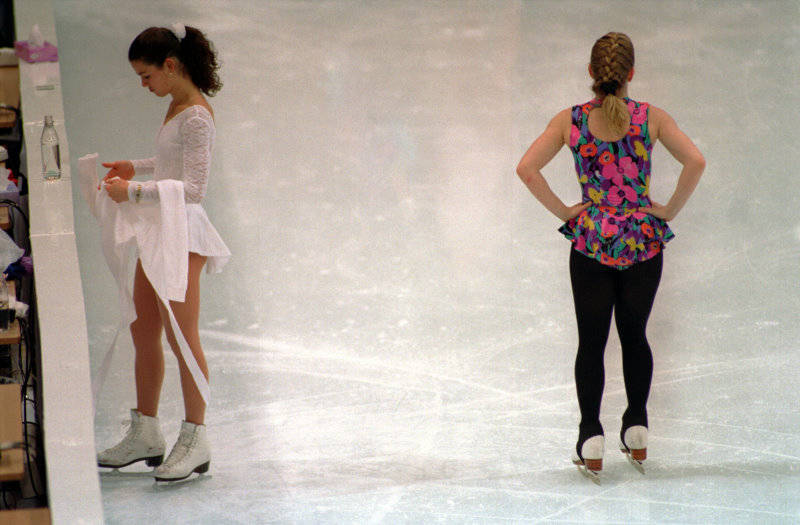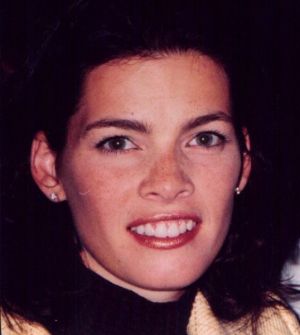Primary Source
KERRIGAN INJURED IN ASSAULT
DETROIT -- Violence shattered figure skating's fairyland world here yesterday afternoon after practice for the US Championships when an unidentified man struck national champion Nancy Kerrigan of Stoneham, Mass., on the right knee with what was believed to be a crowbar. ''Why me, why, why, why?'' Kerrigan sobbed as her attacker, described as an adult standing 6 feet and weighing 200 pounds, ran down a corridor at Cobo Hall and escaped by breaking through a chain-locked plexiglass door. ''It hurts, it really hurts,'' she told her father, Dan, who had been watching practice and carried her out of the rink. ''I'm so scared.''
"I'm OK," Kerrigan told ABC later last night. "It could have been a lot worse."
….Ever since she won her Olympic medal, Kerrigan has been a national figure. "People Magazine" named her one of the country's 50 most beautiful people. Campbell's Soup and Seiko signed her to endorsement contracts. A Campbell's advertisement, showing Kerrigan checking a hockey player, is airing this week.
"Nancy has to understand that she's a visible person, and for the rest of her visible life, she'll need protection," said [her longtime coach Evy] Scotvold. "She hasn't been a star for years and years. People who have been know about these things. She doesn't know about them."
For figure skating officials, the attack on Kerrigan demolished any illusions that their top athletes are immune from the cranks who routinely shadow highly paid sports stars.
"We're a little sport, but we have high visibility," said Scotvold. "We're subjected to all the big league terror."
Until yesterday, the terror was limited to letters and phone calls. Now it includes sweating strangers swinging crowbars. "We can deal with what happened here," said Scotvold. "I'm more concerned about Nancy two or three weeks from now. I'm concerned about how untrusting she will be about being a young woman in a free country."
"I won't lose faith in people," Kerrigan told ABC. "That's just one bad guy. I'm sure there are others, but not everybody's like that."
Boston Globe, January 7, 1994.




